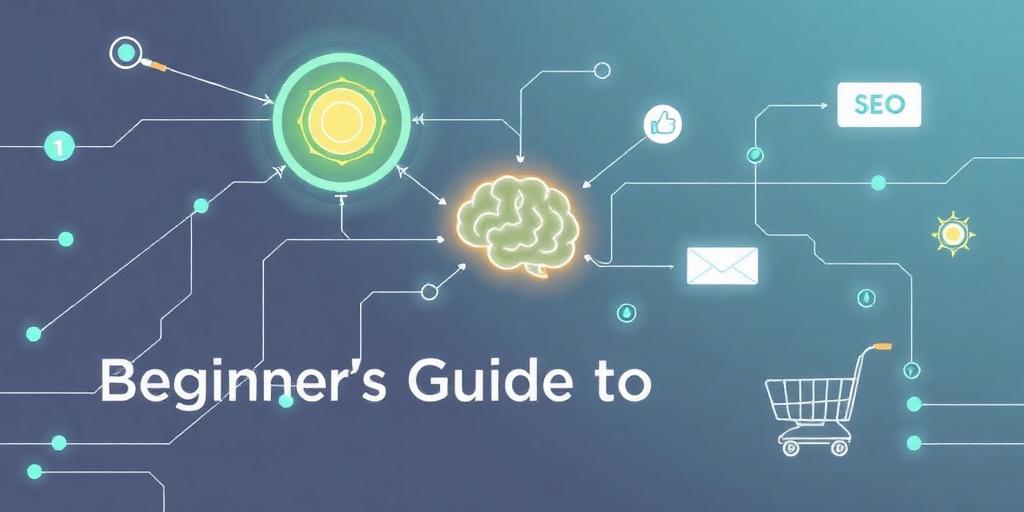Digital marketing has become an indispensable force in today's business landscape. For newcomers, the vast terminology and diverse strategies can seem daunting. This comprehensive guide aims to demystify digital marketing, providing a clear foundation for anyone looking to understand its core principles and practical applications. Whether you're a small business owner, a student, or simply curious, grasping these fundamentals is your first step towards online success.
What Exactly is Digital Marketing?
Digital marketing encompasses all marketing efforts that use an electronic device or the internet. Businesses leverage digital channels such as search engines, social media, email, and other websites to connect with current and prospective customers. Unlike traditional marketing, digital strategies offer unparalleled measurability, targeting capabilities, and cost-effectiveness, making them crucial for growth in the modern era.
The Pillars of Digital Marketing: Essential Channels Explained
Understanding the various components of digital marketing is key to developing an effective strategy. Here are the primary channels:
1. Search Engine Optimization (SEO)
What it is: SEO is the practice of increasing the quantity and quality of traffic to your website through organic search engine results. It involves optimizing your website's content, technical setup, and off-page signals to rank higher on search engines like Google.
Why it matters: Higher rankings mean greater visibility, leading to more free, qualified traffic. For those asking, "What is digital marketing's most crucial long-term strategy?" SEO is often the answer.
2. Search Engine Marketing (SEM) / Pay-Per-Click (PPC)
What it is: SEM involves paid advertising efforts to appear on search engine results pages. PPC (Pay-Per-Click) is a model where advertisers pay a fee each time one of their ads is clicked. Google Ads is the most prominent platform.
Why it matters: PPC offers immediate visibility and allows for highly targeted campaigns based on keywords, demographics, and user behavior.
3. Social Media Marketing (SMM)
What it is: SMM uses social media platforms (Facebook, Instagram, LinkedIn, X, TikTok, etc.) to connect with your audience, build your brand, drive website traffic, and generate leads. It includes both organic posting and paid advertising.
Why it matters: Social media provides direct engagement with customers and powerful branding opportunities. It's an excellent channel for understanding user preferences and for starting a digital marketing career focused on community building.
4. Content Marketing
What it is: Content marketing focuses on creating and distributing valuable, relevant, and consistent content to attract and retain a clearly defined audience — and, ultimately, to drive profitable customer action. This can include blog posts, videos, infographics, e-books, and podcasts.
Why it matters: Quality content establishes authority, builds trust, and naturally supports SEO efforts, answering a user's intent beyond just a simple search query.
5. Email Marketing
What it is: Email marketing involves sending commercial messages to a group of people using email. It's often used for newsletters, promotions, product updates, and nurturing leads.
Why it matters: It's one of the most effective channels for lead nurturing and customer retention, offering an excellent return on investment for many businesses.
6. Affiliate Marketing
What it is: Affiliate marketing is a performance-based marketing strategy where a business pays a commission to one or more affiliates for each visitor or customer brought by the affiliate's own marketing efforts.
Why it matters: It allows businesses to expand their reach through partners without upfront advertising costs, making it a viable option for diverse digital marketing strategies for small businesses.
7. Website Analytics
What it is: Website analytics involves collecting, measuring, analyzing, and reporting web data to understand and optimize web usage. Tools like Google Analytics are indispensable.
Why it matters: Data-driven insights are crucial for evaluating campaign performance, identifying areas for improvement, and making informed decisions across all digital marketing efforts.
Why Digital Marketing is Essential in Today's World
In an increasingly digital world, a strong online presence is no longer optional; it is fundamental for business survival and growth. Digital marketing allows businesses to:
- Reach a Global Audience: Break geographical barriers and connect with customers worldwide.
- Target Precisely: Focus efforts on specific demographics, interests, and behaviors.
- Measure Effectively: Track campaigns in real-time and analyze performance with granular data.
- Cost-Effectiveness: Often more affordable than traditional advertising, with higher ROI potential.
- Adapt Quickly: Adjust strategies based on immediate feedback and market changes.
Getting Started: Your First Steps in Digital Marketing
For those ready to learn digital marketing online and implement it, here's how to begin:
- Define Your Goals: What do you want to achieve? (e.g., brand awareness, leads, sales).
- Understand Your Audience: Who are you trying to reach? Create buyer personas.
- Choose Your Channels: Based on your goals and audience, select the most relevant digital marketing channels.
- Create a Website: Your central digital hub is non-negotiable.
- Develop a Content Strategy: Plan what valuable content you will create.
- Implement and Iterate: Launch your campaigns, monitor performance using analytics, and continuously optimize.
This guide provides a comprehensive overview of the essential digital marketing channels and their importance. Embracing these concepts will equip you with the knowledge needed to navigate the digital landscape effectively and drive meaningful results for your brand or career.









